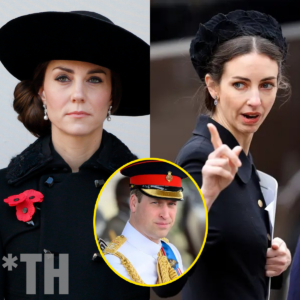
Advertisements
Tyler Perry’s Portrayal of Media and the Complex Intersection of Perspectives
In a compelling video, Gino Jennings fervently affirms comedian Cat Williams’ outspoken comments regarding Tyler Perry’s choice to wear women’s attire for financial gain and fame. Known for his bold preaching, Jennings criticizes Perry for embracing what some deem as comedic practice, emphasizing the seriousness of the matter. Williams echoes Jennings’ sentiments, adding critique on Perry’s acting abilities, suggesting he excels only in portraying female characters.
This candid discussion unveils a layered perspective on Perry’s unconventional approach to success, sparking a dynamic dialogue on the intersection of entertainment, identity, and artistic expression. Jennings boldly preaches against what he sees as a violation of biblical principles, expressing concerns about potential spiritual consequences of deviating from traditional gender norms.
Jennings’ outspoken approach underscores his belief in adhering strictly to biblical teachings, even amidst societal changes or popular culture influences. He questions Perry’s authenticity and criticizes preachers who remain silent on the matter for fear of offending influential figures.
The controversy surrounding Perry’s portrayal of “Madea” brings to light a complex intersection of perspectives and biblical truths on entertainment, identity, and artistic expression. While Jennings and Williams question the motivations behind Perry’s choices, Perry defends his decision, citing it as a means of bringing joy and upliftment to audiences.
Perry’s journey, from the inception of “Madea” to the establishment of Tyler Perry Studios, underscores his significant contributions to the entertainment industry. However, the controversy raises broader questions about the responsibility of creators in shaping cultural narratives and the potential consequences of perpetuating stereotypes for financial gain.
Despite criticisms, Perry remains resolute in his belief that he has done nothing wrong. He emphasizes the transformative experience of portraying “Madea” and its positive impact on audiences. In the dynamic dialogue surrounding Perry’s choices, it becomes clear that the impact extends beyond entertainment, resonating with societal norms, artistic responsibility, and cultural representation.
As the discourse continues, it prompts reflection on the complexities of identity, representation, and artistic expression in contemporary society. Regardless of differing perspectives, the conversation encourages critical engagement and thoughtful consideration of the broader implications of creative decisions in shaping cultural narratives.
Advertisements
News
Thomas Markle ‘so sad’ he won’t join Prince Harry and Meghan Markle for special occasion
Thomas Markle has been estranged from his youngest daughter Meghan Markle since shortly after her wedding to Prince Harry in 2018. Thomas Markle has never met neither…
Rose Hanbury breaks silence to answer allegations over Prince William affair
There have been an untold number of well-publicized royal scandals over the years, many points in history where the ongoings of the British monarchy have dominated newspaper…
Netflix CEO Snubs Sussexes’ $100 Million Deal: Meghan Markle Faces Rejection from Streaming Giants
SO, BACK IN 2020, MEGXIT HAPPENED. HARRY AND MEGHAN DECIDED TO STEP BACK FROM ROYAL DUTIES, CITING PRIVACY CONCERNS AND A DESIRE FOR INDEPEN… So, back in…
Man Claiming to Be King Charles & Queen Camilla’s Son Speaks Out on DNA Test — Details & His Photos
An Australian’s quest for royal recognition takes a dramatic turn, with a plan to compare DNA with a royal family member at the center. Amidst a backdrop…
Prince Harry and Meghan Markle reportedly face their titles being STRIPPED with the Royal Family’s silent approval
The Palace has be warned that a potential move could spark backlash from the public if it’s given the go ahead. A royal expert has claimed that…
Meghan Markle thinks Prince Harry is making ‘big mistake’ by reaching out to Princess Kate
Meghan Markle is reportedly worried about Prince Harry attempting to reunite with his sister-in-law, Princess Kate, following the news of her cancer diagnosis, as he prepares for…
End of content
No more pages to load





